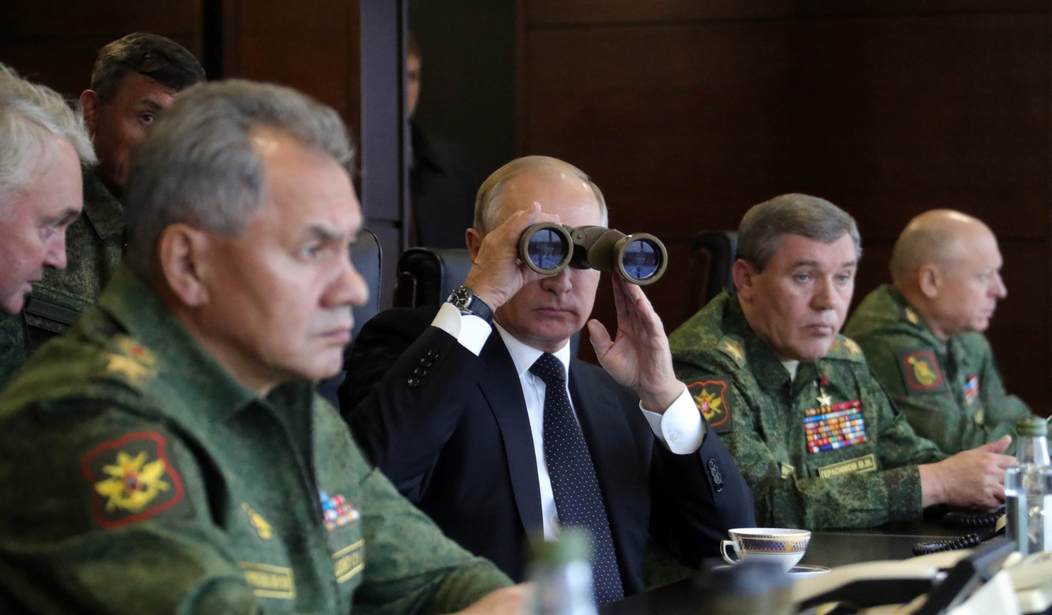WASHINGTON – The White House’s denial or lack of urgency on Russian interference makes it difficult for the U.S. to mobilize effective resources in combating Kremlin misinformation, an international consultant told the Helsinki Commission on Thursday.
Special counsel Robert Mueller is currently investigating whether President Trump’s campaign colluded with Russia in Moscow’s 2016 election influence operation. Democratic members of the Helsinki Commission, which includes Senate and House lawmakers, discussed on Thursday how there is no central unit within the U.S. government for combating misinformation. Sen. Jeanne Shaheen (D-N.H.) asked the commission’s panel of experts who should be in charge of leading efforts in the information war.
“I think it’s clear that until the White House believes that this an issue that we need to address forcefully – that’s a very difficult question – but it needs to be something that is assigned to an individual within our government,” Molly McKew, CEO of Fianna Strategies, told Shaheen.
McKew has consulted Vlad Filat, former prime minister of Moldova, which borders Ukraine and Romania, and Mikheil Saakashvili, who served as Georgia’s president during a 2008 military conflict with Russia.
Shaheen described disinformation as one of the most significant threats facing American democracy today.
“I think one of the reasons we have had trouble developing a whole-of-government approach is because the first thing that really got the attention of the American people was the Russian interference in our elections in 2016, and that was viewed through a partisan lens as opposed to through an understanding that this is a threat to the foundations of American democracy,” Shaheen said. “It has nothing to do with Republicans and Democrats. It’s all about how do we undermine democracy in America and in the West.”
The New Hampshire senator explained that she has spoken with military officials about the issue, who deflected questions to the State Department. McKew said there is a wealth of resources under the military and State Department’s direction that could be used to better address Russian interference, including the State Department’s underutilized Global Engagement Center and an entire unit in the Pentagon that deals with information warfare. She said that the Marine Corps also has a newly established directorate of information, which could coordinate with Special Forces. All of these resources, she said, should be receiving direction from a central point.
“None of these are coordinated,” McKew said. “They’re all sort of drifting around. None of them have any mandate to look at what’s happening inside the United States, coordinate with counterintelligence.”
McKew also noted that there aren’t any offices or units within the federal government devoted to screening and combating misinformation on social media.
Melissa Hooper, an attorney with Human Rights First, said that Congress has provided leadership where the White House and the Secretary of State have left gaps. She encouraged more democracy funding at the State Department, hearings to highlight this issue and coordination with tech companies and civil society.
Sen. Sheldon Whitehouse (D-R.I.) raised questions about Russian influence and corrupt money flooding into the U.S. through anonymous shell companies. Anders Åslund, who advised the Russian government from 1990 to 1994, told the Helsinki Commission earlier this year that Russian kleptocrats are feeding tens of billions of dollars into the U.S. through American companies. Hooper said on Thursday that about half of illicit cash in Russia has been moved outside the country.
According to Hooper, American law firms and accounting firms are advising Russian kleptocrats on how to take advantage of U.S. rule of law.
“This not only harms our own system but our reputation, democratic values,” she said. “It’s precisely where the U.S. needs to put its attention.”









Join the conversation as a VIP Member